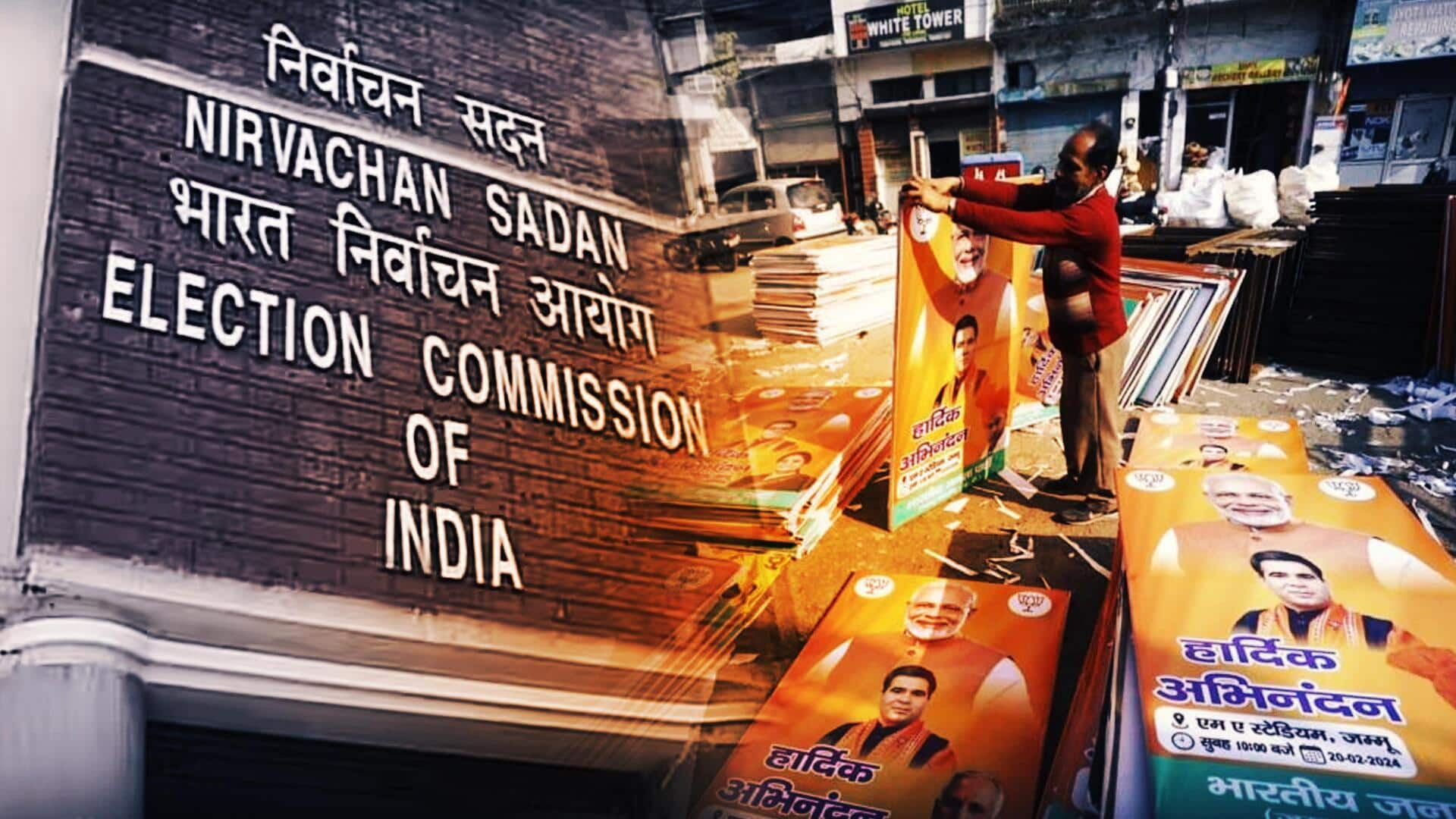
Lok Sabha polls: ECI orders crackdown on anonymous political hoarding
What's the story
In a move to enhance transparency and accountability in election campaigns, the Election Commission of India (ECI) has issued a directive requiring clear identification of printers and publishers on all printed election-related materials. The decision came in response to reports of anonymous political billboards surfacing in municipal areas. The Aam Aadmi Party (AAP) had also approached the EC on the issue recently. On Tuesday, the Municipal Corporation of Delhi (MCD) removed 6,12,729 political advertisement from across its 12 zones.
Context
Why does this story matter?
The Representation of the People Act of 1951 prohibits the printing or publication of election pamphlets, posters, placards, or banners without the printer's and publisher's name and address prominently displayed. The regulation grants the ECI the authority to oversee campaign financing and assign accountability in cases where content is deemed inappropriate within the parameters of the Model Code of Conduct (MCC).
Responsibility shift
Accountability extended to printers, publishers, and advertisers
"With this directive, the Commission now has put the accountability on printers, publishers, licensees/contractors of urban local bodies renting out outdoor advertising space for the political advertisements published on outdoor media," the ECI said in a statement. The decision was made by the ECI, which includes Chief Election Commissioner Rajiv Kumar, Election Commissioners Gyanesh Kumar, and Dr Sukhbir Singh Sandhu.
Misinformation battle
EC chief highlights importance of combating misinformation
Chief Election Commissioner Kumar had recently highlighted misinformation as one of the hurdles to a level playing field, alongside money and muscle force. In a separate development, the Supreme Court has set an April 16 hearing date for petitions seeking cross-verification of votes with the Voter Verifiable Paper Audit Trail (VVPAT). Currently, only five randomly chosen Electronic Voting Machines (EVMs) per assembly segment of a Lok Sabha seat are verified using VVPAT; this plea proposes increasing this number to 100%.